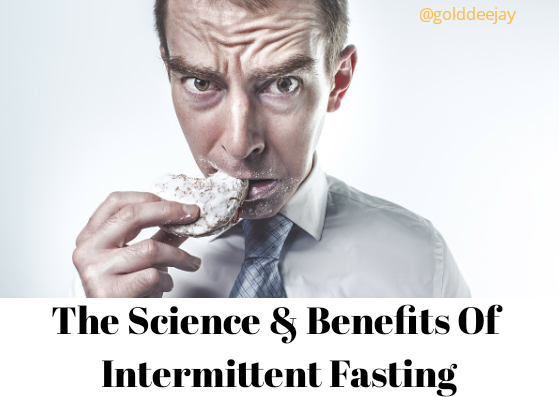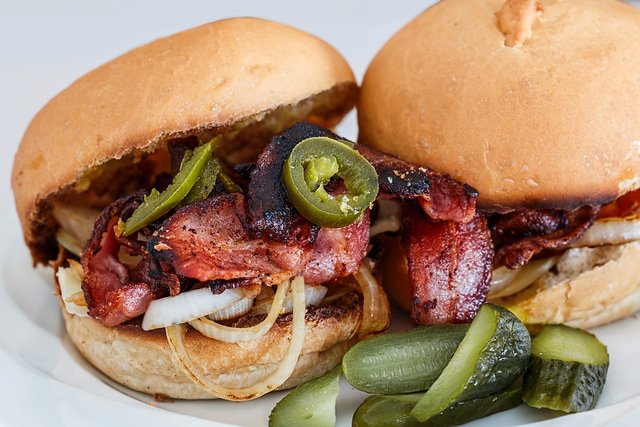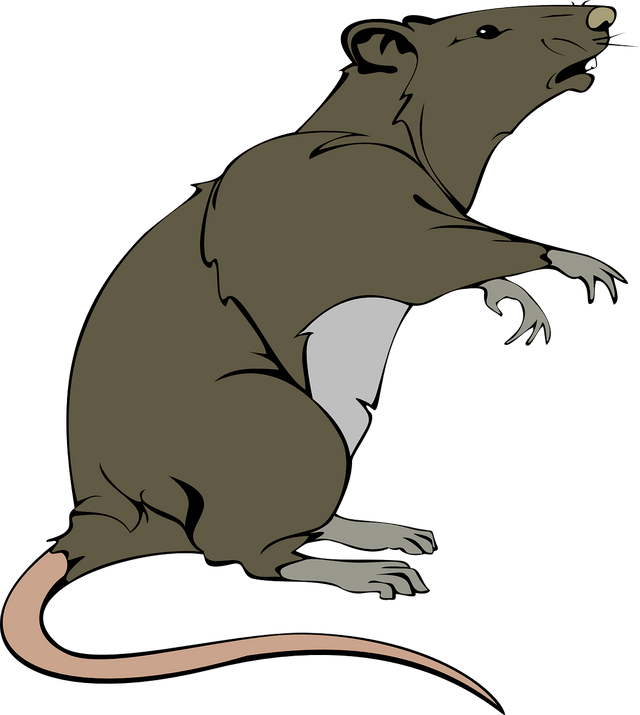The Science of Intermittent Fasting, Health Benefits And Aging

Introduction
Food is definitely one of the essential needs of life, human basically needs it to survive. With the development of the human race came the realization that it is not enough and particularly healthy to eat just to live and satisfy hunger.
Then different questions about the right food and optimal eating frequency sprang up. With the evolution of science, there has been consciousness to how, what and when we need to eat, not for just living, but for healthy living.

The traditional eating pattern has been three times a day, which is based on giving the body food most times it asks for it. The potential issue with that cycle is that diet is less controlled and increased calorie intakes which are likely to lead health problems associated with poor eating habits. Recent researches have dug into the benefit of intermittent fasting as a good way of restricting calorie intake for effective weight loss and general healthy living. From antiquity, fasting has been only widely considered as a way of spiritual atonement or petition to God or a god, but recent researches are suggesting there may be great health in reducing our calorie intake through fasting. And a potential longevity to be gained when done properly. Although the jury is still out on it.

Intermittent Fasting - A fad or scientific stamped?
Effects on Rodents
Though the idea of intermittent fasting gained popularity on the internet just a couple of a years ago, the idea was born in the 1930s when Clive McCay and his group conducted a study on its health benefit on animals, making use of the more available rats.

Effects On More Related Animals
Further research works have been conducted on the link between calorie restriction, health and aging. The notable one has been conducted since the 80s and still ongoing, this time using the more human-related rhesus monkeys. Two research teams at the University of Wisconsin Primate Center in Madison and National Institute of Aging collaborated on it. After the initial conflicting and inconclusive results which were due to the difference in the study methods. The current result published in 2017 shows that caloric restriction has a great say in longevity. Although Other factors such as age, sex and diet can make a big difference in the potency of any lowered calorie diet plan.

Study on Humans
Though different individuals have reported the effect of fasting on their physical and general well being. There have been very few prolonged studies on actual humans probably due the affection (or addiction, if you like) to food and the reluctance to adhere to extreme diets for a long time. One of those few studies, was a small one conducted on 71 people placed on fast mimicking diet low in carbs, sugar and protein but high in unsaturated fats for initial 3 months, they were allowed to return to their normal eating habits for the next three months and then back to the fasting diet. The fasting diet outcome was analyzed and found to produce the following results in the participants...
- Reduction in their weight and body fat
- Reduced blood pressure
- Reduction in the hormone IGF-1 ( a major factor in diseases)
- Decreased cholesterol, BMI, glucose, triglycerides
- Reduction of C-reactive protein, that characterizes inflammation
The result of the fasting mimicking diet was more prominent in the participants with a higher risk of developing diseases at the beginning of the study. The result of these studies is quite promising but larger one with human subjects, especially with diagnosed diseases to ascertain how effective intermittent fasting can be in preventing or possibly treatment of diseases.
The Okinawans
Another case for caloric reduction is the 'uncontrolled' study of the Japanese people of the island of Okinawa who have more centenaries, lower mortality and lowers cancer-related death than the whole of United State and most places.


Easy Calorie reduction Method
The best way to reduce calorie is still fasting. Calorie restriction is hard to monitor and will most likely make you hungrier. Technically, We fast every day. Yea...right, you do.

- The 5/2 diet - In this plan, you eat normally for 5 days in a week and restrict your calorie intake to not then 500 - 600 for the remaining two days of the week.
- 20/4 diet - Called the warrior diet. As the formula suggests, you simply (not that simple) fast for 20 hours and eat normally once at night. It is more flexible than 16/8 as it allows you to eat small snacks during the fasting hours. This method is somehow difficult to maintain as it is easy to lose discipline and small snacks tend to make people hungrier.
- Alternate fasting - In this plan, you fast or highly reduced your calorie intake every other day. Straightforward method but comes the temptation of losing discipline after feasting the day before.
- Eat-Stop-Eat - Here, you are allowed to fast for a day or two of the week and go back to your regular eating for the other days. Calorie-free drinks during the fasting day(s) is allowed and moderate and/or spread across exercise on non-fasting days can also come handy.
- 16/8 diet - Also called Lean Gain. This is the most popular and seems like the easiest IF method to adhere to, where you fast for 16 hours and eat to your satisfaction for the other 8 hours. It offers freedom of meal frequency with no strict guideline or calorie restriction for 8 hours but with a much-reduced chance of entering ketosis if the carbs and protein intake were high during the eating period.

Final Thought
Intermittent Fasting is your good chance of entering ketosis, where your body digs into and break down stored fat directly for the energy it needs which is preferred method of losing body fat (or weight) among other health benefits.

Thank you for reading.

Free Images from Pixabay 1, 2, 3, 4, 5, 6
Reference
Calorie restriction and intermittent fasting
Calorie restriction lets monkeys live long and prosper
Fasting for a long healthy life: is there a scientific basis?
Is fasting the key to weight loss, good health, youthful vitality and longevity?
Good post. I’ve been doing intermittent fasting for about 4 years now and I really enjoy it. It’s a bit more difficult with a young child but it’s easier when at work. I typically eat between 12 noon and 1pm then don’t eat again until I get home at 530 or 6 then maybe a small snack at 7.
It was certainly difficult to stick to it in the beginning but it only takes 21 days roughly to form a new habit.
My weight has stabled and I haven’t had the opportunity to work out like we used to so once we get back to that opportunity I will get down to the BMI I had in university when I first started this, roughly 20-21.
People will call you crazy, foolish, remind you the fallacy that breakfast is ‘the most important meal of the day’ that’s been pushed on us for years but one of the other fantastic benefits of the intermittent fasting is it bolsters your immune system. I’ve read a couple studies on the benefits of the fasting plan for cancer patients and they found it strengthens their immune system and aids them in their treatment.
It’s very important to stay well hydrated during the fasting time though, it will decrease your chances of trying to grab a snack since hunger and thirst are the same sensation to our stomachs.
I recommend it to everyone I talk to that inquires and my wife has started on it to a lesser extent and have had great success so far.
Been on intermittent fasting is an achievement. Apart from the health benefits, you feel good about yourself. Personally i think 16/8 method is 'convienent' for anyone that wants to live healthy. I have never been a fan of breakfast even before i started intermittent fasting. I used to have this concept of feeding only when my body asks for it.
And yes, children should not be allowed to fast that much especially if they are not obese. They are at the stage where their body is growing. IF should start from 20 or thereabout.
Drinking enough water is important whether fasting or not. It reduces calorie intake. It's good for losing weight among other benefits.
I am happy you can relate with the post with your personal experience.
And yes, Your BMI of 21 is great. I have also been maintaining 21 for as long as i can remember.
Thank you @cmplxty for the great comment.
very interesting information and increase knowledge. Many unhealthy eating habits that cause diseases or foods that can be healthful.
Depending on how we use the food for the body
Thanks
Thanks for stopping by @regina80. It is good you found the post interesting.
Congratulations! This post has been upvoted from the communal account, @minnowsupport, by golddeejay from the Minnow Support Project. It's a witness project run by aggroed, ausbitbank, teamsteem, theprophet0, someguy123, neoxian, followbtcnews, and netuoso. The goal is to help Steemit grow by supporting Minnows. Please find us at the Peace, Abundance, and Liberty Network (PALnet) Discord Channel. It's a completely public and open space to all members of the Steemit community who voluntarily choose to be there.
If you would like to delegate to the Minnow Support Project you can do so by clicking on the following links: 50SP, 100SP, 250SP, 500SP, 1000SP, 5000SP.
Be sure to leave at least 50SP undelegated on your account.
As a follower of @followforupvotes this post has been randomly selected and upvoted! Enjoy your upvote and have a great day!
Congratulations! Your post has been selected as a daily Steemit truffle! It is listed on rank 17 of all contributions awarded today. You can find the TOP DAILY TRUFFLE PICKS HERE.
I upvoted your contribution because to my mind your post is at least 7 SBD worth and should receive 101 votes. It's now up to the lovely Steemit community to make this come true.
I am
TrufflePig, an Artificial Intelligence Bot that helps minnows and content curators using Machine Learning. If you are curious how I select content, you can find an explanation here!Have a nice day and sincerely yours,

TrufflePigIf you would like to support the educational community by delegating to @steemiteducation, please click on any of the following links. This will ensure that more teachers are supported on a daily basis.
100SP 200SP 300SP 400SP 500SP 750SP 1000SP 2000SP 3000SP 4000SP 5000SP 10,000SP 25,000SP
Congratulations @golddeejay! You have received a personal award!
Click on the badge to view your Board of Honor.
Do not miss the last post from @steemitboard:
SteemitBoard World Cup Contest - The results, the winners and the prizes